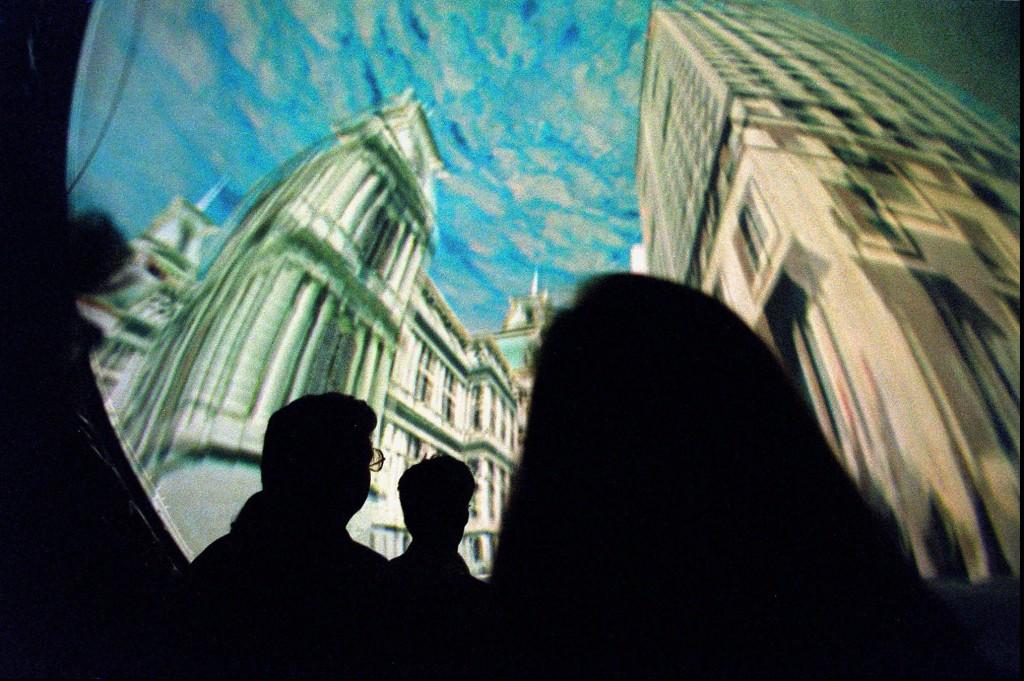Where In The World (of Warcraft) Are We?
June 3, 2011

Published: April 17, 2008
It is odd being in two places at once.
On Thursday nights, we all go out to dinner. We chat and joke and enjoy our meal, talk about movies and business and the people we know. After we finish, the eight or nine of us walk a few blocks and then pause to part ways before those not living in the dorms head towards the train. Hugs and handshakes all around, lots of “See you next week” and “Have a good weekend.” “Maybe I’ll see you online tonight,” I say to one, “in the ‘World.’”
“World of Warcraft” is a persistent online game world host to millions of players every week. “World of Warcraft” (or “WoW” as it is often called) has its own geography, its own public transportation system, its own chat protocol, its own holidays, its own economy and, due to a software bug in 2005, it once even had its own epidemic. Individuals playing on the same server can meet up inside the game world and cooperate, and that is what my friend and I often do, hanging out on those Thursday nights after dinner.
“Where are you?” another friend asked one Thursday night.
“Ironforge,” I said, without hesitation.
“No, I mean where are you really?”
“Uh, in my dorm room, I guess.”
“With your friend?”
“No,” I said, “he is at home in Brooklyn.”
“So, where are you really?” she asked. “Are you more in your dorm room or more in Ironforge?”
I paused and thought for a while. Without a doubt I was in two places at once, and I had to admit that, on that Thursday night after dinner, I was more in the “World of Warcraft” than in the physical world that contained my dorm room.
One could argue that the “World of Warcraft” is only fictional because it isn’t made of matter, and rather exists instead only as a pattern of information on a computer server. Even that distinction, however, is seeming less important. Things happen there, after all, and millions of people do things there regularly. The in-game and out-of-game economies intersect at several points, with players trading national currency in exchange for gold, the in-game currency, or for other goods and services that will benefit them in the game. Once an in-game funeral was held for a player who died out-of-game. If two people can hang out together there without being in the same room, doesn’t it need to be a place?
I’ve become increasingly wary of using terms like “reality” and “in the real world” to designate events that do not take place on the Internet, the world of connected information. When so many people talk online, research online, publish online, play online, make their hobbies and businesses online and spend a great deal of their time online, is it right to say that those things aren’t “real?” Instead I’ve reluctantly taken to using the terms “cyberspace” and “meatspace” (because bodies are made of meat) to distinguish the world of bits from the world of atoms, respectively. This has its own problems, however. Space as we understand it is best replicated in digital worlds like “WoW” or what has been called the world’s largest digital art installation, “Second Life.” These worlds are three dimensional digital environments that change over time and in which a person’s presence is represented by a character or avatar. Most of the Internet isn’t like that, however.
The question of how to understand computers and digital communication networks like the Internet has been discussed since the earliest days of university email servers. Is the Internet an appliance that performs a task for us? Is it a medium of transport for things not made of atoms—an information superhighway, as it is sometimes called? Or is it a place, cyberspace, that we go and do things in? None of these seem quite adequate, but the case of “WoW” and persistent worlds like it seems to indicate that even if the internet is not itself a place, it can certainly contain places in digital form.
Compared to what it takes to do well in meatspace, surviving and advancing one’s status in the “WoW” is relatively easy, and that is probably part of the game’s appeal. Recently one online commentator reviewed another massively multiplayer game, Outside, the game that we all play every day, all the time, in meatspace. He gave it a seven out of 10 and called it highly overrated. Really, though, these games aren’t separate. It is all the same world, and it is getting more complicated. There are things happening that have never happened before—like being in two places at once—and these things can be confusing and disconcerting. But that’s okay; new things are what make any game interesting. New things make us want to keep coming back, keep playing in the world.











